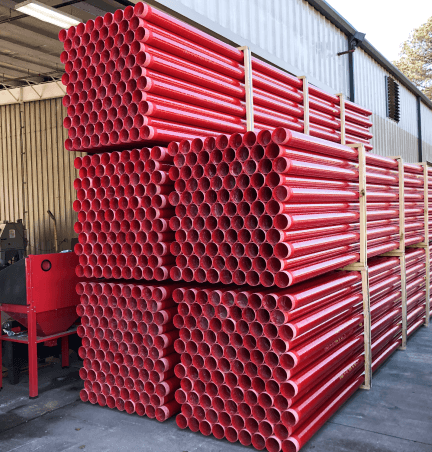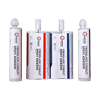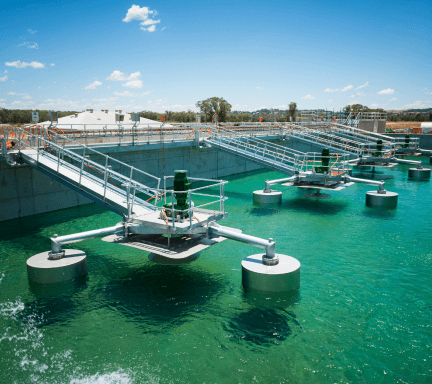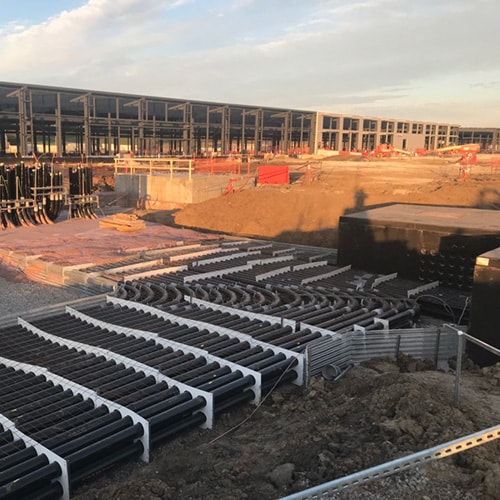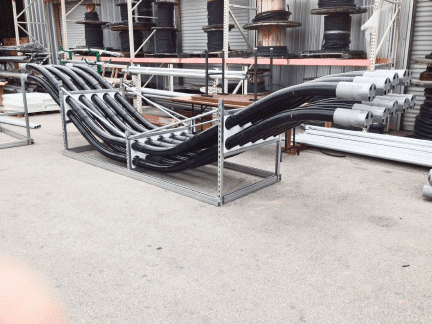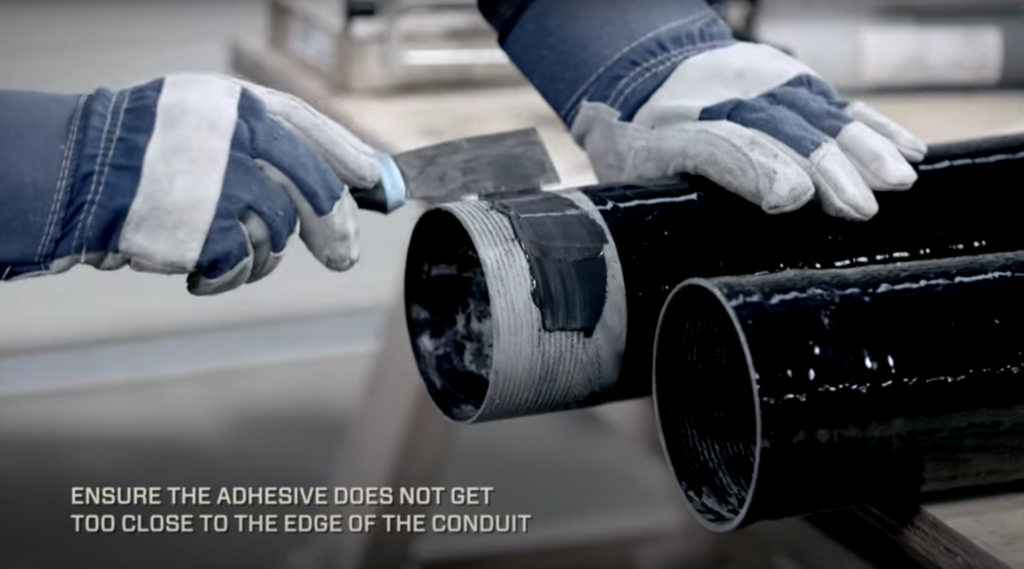When bonding fiberglass electrical conduit, this question often arises — will epoxy adhesives cure in cold weather? Yes, when working with epoxy adhesives for the designated ambient temperature, curing is not an issue. Conduit manufacturer Champion FiberglassⓇ offers epoxy adhesives that are specifically formulated for cold weather bonding applications.
How it Works
Outside ambient temperatures affect the curing and handling properties of epoxy adhesives in outdoor environments. Cooler temperatures can cause epoxy adhesives to become too thick if not formulated properly, and temperatures that are too warm can inhibit it from curing properly.
Epoxy adhesives are exothermic, meaning its chemical reaction is accompanied by the release of heat, and must be formulated differently depending on what the ambient temperature will be in the project setting. The warmer the ambient temperature is, the faster the epoxy adhesives will react and harden. To accommodate customers doing work during the winter or in colder climates, Champion Fiberglass makes epoxy adhesives specifically formulated for cold weather.
Identifying the ambient temperature range where the epoxy adhesive will be used is key. For example, when working with Champion Fiberglass Epoxy Adhesive CM2040, which has a temperature range of 40° to 70° F, the lowest ambient temperature that it should be used at is 40° F. If used below 40° F, the epoxy adhesive may most likely fail to fully cure. If used above 70° F, it will cure, but will cure much faster than the noted listed curing times. It’s important to always be mindful of the lowest ambient working temperature for an installation and select the appropriate epoxy adhesive based on that information.
Proper mixing technique is particularly important when working with epoxy adhesives because incomplete/improper mixing of the hardener and epoxy adhesive can cause adhesive connections to improperly cure and potentially fail.
Another factor affecting bonding in cold environments is epoxy adhesive storage. By keeping the epoxy adhesive in a temperature-controlled facility (room temperature), driving it to the job site in a warm vehicle, and keeping it inside of a warming box until ready to use, the epoxy adhesive will work as designed. Storing epoxy adhesives in a cold environment for an extended period of time will make it difficult to impossible to eject the epoxy adhesive from its tube. In a pinch epoxy adhesives can be warmed on the dashboard of a vehicle before deploying it in the field.
Champion Fiberglass offers epoxy adhesives with multiple different curing times and temperatures. This allows our customers to select an appropriate working time and temperature for their specific application and preferences.
Champion Fiberglass epoxy adhesive is deployed from a dual barrel cartridge and mixed in a mixing nozzle, which eliminates the need to manually mix the two parts together, significantly improving field handling.
More information about our epoxy adhesives can be found in our adhesive flyer. You can also calculate adhesive project needs using our epoxy adhesive calculator.
If you have additional questions about selecting the appropriate epoxy for your project please reach out to a Champion Fiberglass Rep to learn more.








